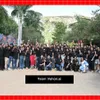The life sciences business thrives on innovation, but a few of its brightest minds—PhDs, MDs, and researchers—are sometimes consumed by paperwork. As a substitute of specializing in breakthroughs in drug growth or affected person care, these consultants spend numerous hours formatting regulatory submissions, reviewing scientific literature, and managing compliance workflows.
A 2023 KPMG report by Pharma Regulatory Compliance estimated that pharmaceutical firms spend as much as 20% of operational time on compliance duties like documentation, traceability, and audits, whereas a 2025 Pharmaphorum evaluation notes that documentation alone can take as much as 30% of employees time attributable to guide processes and restricted automation. This inefficiency is estimated to value the business billions of {dollars} annually, slowing each scientific progress and the trail to new therapies.
“It’s exceptional that an business on the forefront of medical breakthroughs continues to be held again by outdated processes,” Udith Vaidyanathan, Co-founder and CEO of LogicFlo AI, tells YourStory. The ex-BCG worker specialises in pharma and life sciences and in addition served as CEO of Technique at a serious pharmaceutical firm in the course of the COVID-19 pandemic.“I’ve seen docs and medical writers spend weeks simply piecing collectively references or formatting paperwork.”
In 2024, he teamed up along with his childhood good friend from Chennai, Arun Ramakrishnan, and based LogicFlo AI with an undisclosed quantity. “I’ve seen each side, the worth of rigorous SOPs and compliance, but in addition the inefficiencies they create,” says Vaidyanathan.
The Boston-headquartered startup tackles systemic inefficiencies in life sciences organisations—pharmaceutical, biotech, and medtech firms—by automating and streamlining high-compliance, knowledge-heavy workflows. These embrace medical writing, regulatory submissions, high quality documentation, and industrial operations.
It deploys specialised AI brokers educated on company-specific Customary Working Procedures (SOPs), templates, and compliance frameworks. These brokers deal with the time-consuming, process-heavy duties, whereas human consultants stay totally in charge of the ultimate output.
“Our AI isn’t a generic co-pilot. It’s a website professional designed to know the complexities of regulated environments, medical, regulatory, high quality, and industrial capabilities. We’re not changing scientists or docs. We’re enabling them to concentrate on science, technique, and innovation, whereas AI does the heavy lifting,” he explains.
The size of the problem
The inefficiencies that LogicFlo addresses should not remoted—they’re structural. Whereas drug discovery and R&D profit from superior applied sciences and heavy funding, commercialisation and compliance processes stay largely guide. An estimated $360 billion is spent yearly in life sciences on repetitive duties which may very well be automated or streamlined.
“We all know that fashionable AI may change this, however provided that constructed with deep context, strict guardrails, and an intensive understanding of compliance necessities,” says Ramakrishnan, Co-founder and CTO of LogicFlo AI.
This conviction led to LogicFlo’s first pilot in Could 2024 with a Fortune 500 life sciences enterprise. The startup says it noticed a big influence, with the documentation course of turning into 20X faster, remodeling months of labor into days, whereas prices dropped by 70-80%.
It has since secured a multi-year contract with the identical enterprise, scaling deployment throughout 300 groups and 10,000 customers globally, together with within the US, Europe, India, and Southeast Asia.
.thumbnailWrapper{
width:6.62rem !essential;
}
.alsoReadTitleImage{
min-width: 81px !essential;
min-height: 81px !essential;
}
.alsoReadMainTitleText{
font-size: 14px !essential;
line-height: 20px !essential;
}
.alsoReadHeadText{
font-size: 24px !essential;
line-height: 20px !essential;
}
}

A human-centric AI method
LogicFlo AI’s brokers function underneath a human-in-the-loop framework, making certain that whereas the AI manages drafting, knowledge processing, and literature opinions, consultants stay the ultimate decision-makers.
“We’re not constructing a black-box AI. Consider our system as an AI-powered co-worker. It may possibly course of 1000’s of scientific papers in hours, floor essentially the most related insights, and draft content material, however the human professional is all the time in charge of the output,” clarifies Ramakrishnan, who has a background in AI and robotics, and developed object detection techniques for robotic surgical procedure for Intuitive Surgical, the place he labored carefully with regulatory groups on FDA documentation.
This method has earned robust validation from purchasers, the corporate says. In early company-sponsored research, eight out of 10 docs rated LogicFlo’s outputs as equally correct and even higher than human-only processes.
Expertise and integration
LogicFlo AI’s platform is constructed round an orchestration framework quite than proprietary foundational fashions, permitting it to combine seamlessly with fragmented tech stacks typically present in life sciences organisations.
Its in-house domain-specific data graph maps relationships between regulatory necessities, scientific knowledge, and organisational content material. Each AI-generated output is totally traceable again to its supply, whether or not a analysis paper, PDF, or Excel file.
“Our platform is explainable by design,” Vaidyanathan emphasises. “Each line of content material we generate might be traced again to its supply, which is important for regulatory submissions and medical communications.”
The system integrates with enterprise instruments akin to Veeva and IQVIA by modular structure, APIs, and standardised protocols, enabling end-to-end workflows for regulatory authoring, high quality checks, and industrial documentation.
.thumbnailWrapper{
width:6.62rem !essential;
}
.alsoReadTitleImage{
min-width: 81px !essential;
min-height: 81px !essential;
}
.alsoReadMainTitleText{
font-size: 14px !essential;
line-height: 20px !essential;
}
.alsoReadHeadText{
font-size: 24px !essential;
line-height: 20px !essential;
}
}

The startup competes with gamers akin to Abridge, Suki AI, and Heidi Well being. Whereas speaking about what makes it stand out out there Vaidyanathan says, “Most AI instruments on this area concentrate on producing content material shortly, however they don’t tackle the complexity of regulated life sciences workflows.”
“Our focus is on constructing AI brokers that work inside strict compliance frameworks, combine with current enterprise instruments, and supply outputs which might be totally traceable and auditable. It’s much less about pace alone and extra about doing the work accurately in a regulated atmosphere,” he provides.
Future plans
The worldwide life science market is projected to expertise a CAGR of 10.28% from 2025 to 2034, in keeping with Cervicorn Consulting.
This yr, LogicFlo secured $2.7 million in seed funding led by Lightspeed. Fortune 500 pharmaceutical purchasers and a number of other world enterprises are piloting its platform, with deployments beginning at 20-30 customers per organisation and increasing to 1000’s throughout departments.
Presently, the startup operates with a lean group of 4, with plans to develop to seven by the top of 2025. LogicFlo claims it’s already driving measurable productiveness positive factors in regulatory filings, literature opinions, medical info responses, and high quality documentation.
LogicFlo AI is presently centered on the US market, the place regulatory and compliance workflows current the best demand for its options. Nonetheless, the group plans to develop globally, tailoring the platform to region-specific rules and localisation necessities.
Edited by Kanishk Singh



